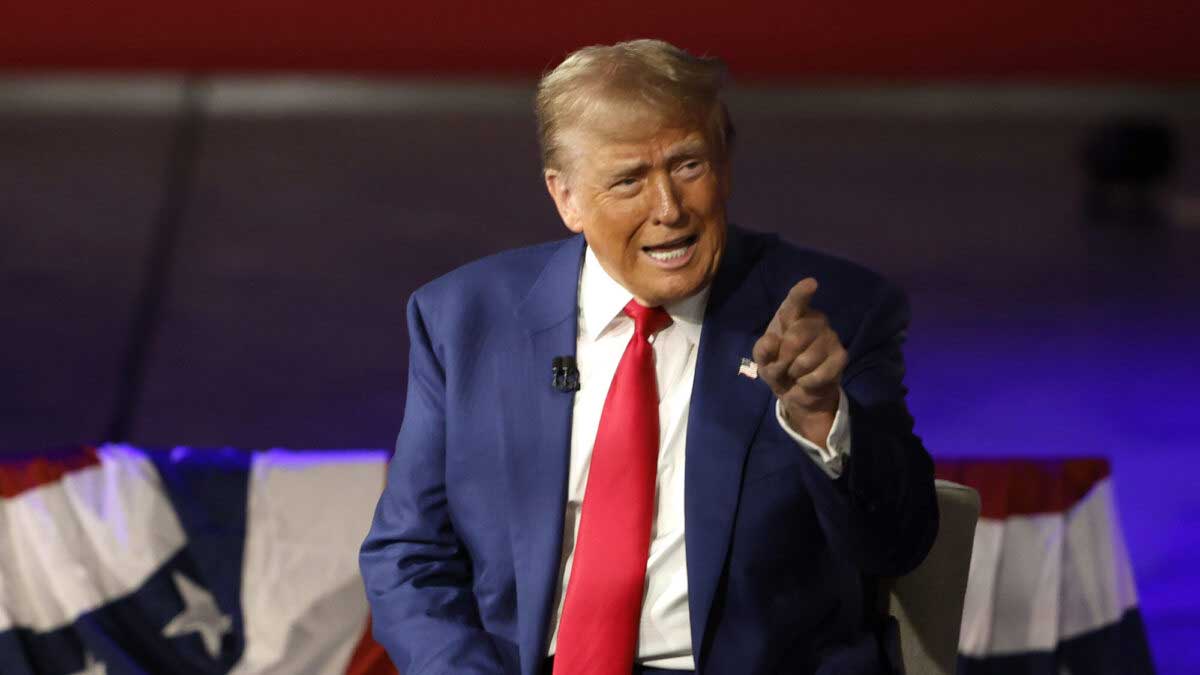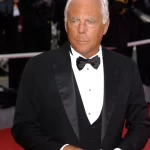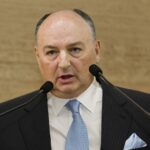- Home
- Billionaires
- Investing Newsletters
- 193CC 1000
- Article Layout 2
- Article Layout 3
- Article Layout 4
- Article Layout 5
- Article Layout 6
- Article Layout 7
- Article Layout 8
- Article Layout 9
- Article Layout 10
- Article Layout 11
- Article Layout 12
- Article Layout 13
- Article Layout 14
- Article Sidebar
- Post Format
- pages
- Archive Layouts
- Post Gallery
- Post Video Background
- Post Review
- Sponsored Post
- Leadership
- Business
- Money
- Small Business
- Innovation
- Shop
Recent Posts
Trump Criticizes ABC Debate Fairness

Former President Donald Trump expressed strong concerns over ABC News’ fairness during a Fox News town hall in Pennsylvania on Wednesday, questioning the broadcaster’s impartiality ahead of next week’s presidential debate, where he will face Vice President Kamala Harris for the first time in person. Trump, known for his previous attacks on the media, specifically singled out ABC, calling it “the worst network in terms of fairness,” a refrain he has used repeatedly in recent weeks.
During his conversation with Fox News host Sean Hannity, Trump escalated his critique, suggesting that the debate, scheduled to be hosted by ABC News, could be biased. Trump claimed, without evidence, that Harris’ “best friend” is connected to the network and that there could be an unfair advantage in play for the vice president. He asserted that Harris and her team might receive the debate questions in advance, a statement he made without providing any specific details or proof.
Although Trump did not name the individual he referred to as Harris’ “best friend,” it is widely speculated that he was pointing to Disney Entertainment co-chair Dana Walden. Walden, a long-time friend of both Harris and her husband Doug Emhoff, oversees Disney-owned properties, including ABC News. The connection between Walden and Harris has been a point of contention for Trump, fueling his claims that the debate would not be conducted on equal terms.
Trump, who has long positioned himself as a vocal critic of major media outlets, described ABC News as “the most dishonest network” and expressed frustration over the fact that he had to agree to debate on ABC because “they wouldn’t do any other network.” This criticism echoes his broader narrative against mainstream media, which he frequently labels as biased against him and his policies.
When Hannity asked Trump how he plans to approach the debate, the former president indicated that his strategy would be similar to the approach he used during his debate with President Joe Biden. “I let him talk. I’m going to let her talk,” Trump said, suggesting that he would give Harris ample time to speak before delivering his responses. His comment underscored the confidence he projects in debate settings, where he often emphasizes his willingness to let his opponents present their points before countering them.
In an especially pointed remark, Trump called ABC News “the meanest, the nastiest” network, yet reiterated that he had no choice but to participate in the debate because it was the only network willing to host it. “I think a lot of people are going to be watching to see how nasty they are, how unfair they are,” Trump said, setting the stage for a contentious encounter between himself and the network on Tuesday night.
The debate, set to air live on ABC News at 9:00 p.m. EDT on Tuesday, will be moderated by David Muir, the anchor of ABC World News Tonight, and Linsey Davis, the host of ABC News Live Prime. The debate is notable as it marks the only scheduled face-to-face meeting between Trump and Harris during the campaign. Although Harris’ team has expressed openness to a second debate, they have stated that any additional debates would be contingent on Trump’s actual attendance at the ABC News event.
This debate is expected to draw considerable attention, given Trump’s vocal opposition to the network and the increasingly charged political atmosphere surrounding the election. With tensions running high, many viewers will be tuning in not just for the policy discussions but to observe the dynamic between Trump and Harris, particularly in light of Trump’s pre-debate accusations of bias.
ABC News released its official rules for the upcoming debate on Wednesday, confirming that the event will follow the same format as the June debate between Trump and President Biden. One of the key rules is that candidates’ microphones will only be live when it is their turn to speak, a format aimed at maintaining order and reducing interruptions. This rule had been a point of contention between the two campaigns, with Harris’ team previously advocating for the option to have unmuted mics throughout the debate.
In a coin toss conducted virtually, Trump won the right to deliver the final closing statement of the debate, a moment that could prove pivotal in framing his final message to voters. Notably, the rules also stipulate that no topics or questions will be shared with the campaigns in advance, a measure intended to preserve the integrity of the debate and avoid any appearance of favoritism. Additionally, the candidates will not be allowed to bring props or prewritten notes onto the debate stage, ensuring that their responses will be entirely spontaneous.
The debate will take place without a live audience, following the precedent set during the CNN debate in June. This decision is likely aimed at reducing the potential for disruption and focusing the event squarely on the candidates’ exchanges.
While much of Trump’s town hall centered on the upcoming debate, a significant portion of the discussion also addressed the issue of fracking, a contentious topic in Pennsylvania—a key swing state. Trump pointed to Harris’ previous statements from her 2019 primary campaign, during which she pledged to ban fracking if elected. Although Harris has since moderated her stance, stating that fracking could continue alongside the growth of clean energy, Trump seized on her earlier comments as evidence of inconsistency.
Harris recently told CNN that while addressing the climate crisis is a priority, she now believes that it is possible to grow a thriving clean energy economy without banning fracking. However, Trump was quick to dismiss her new position, telling the town hall audience that Harris could not be trusted to uphold fracking as an economic driver in Pennsylvania. “You can’t take the chance. You have no choice. You’ve got to vote for me…Even if you don’t like me!” Trump said, underscoring his argument that a Harris administration would spell the end of fracking in the state.
The debate over fracking is expected to be a focal point during the upcoming debate, particularly given its significance to Pennsylvania voters. For Trump, the issue represents an opportunity to contrast his pro-energy policies with what he perceives as Harris’ more restrictive stance on fossil fuels. Whether or not the fracking discussion will sway undecided voters remains to be seen, but it will undoubtedly be one of the key points of contention as the two candidates face off.
Recent Posts
Categories
- 193cc Digital Assets2
- 5G1
- Aerospace & Defense46
- AI37
- Arts3
- Banking & Insurance11
- Big Data3
- Billionaires443
- Boats & Planes1
- Business328
- Careers13
- Cars & Bikes76
- CEO Network1
- CFO Network17
- CHRO Network1
- CIO Network1
- Cloud10
- CMO Network18
- Commercial Real Estate7
- Consultant1
- Consumer Tech180
- CxO1
- Cybersecurity68
- Dining1
- Diversity, Equity & Inclusion4
- Education7
- Energy8
- Enterprise Tech29
- Events11
- Fintech1
- Food & Drink2
- Franchises1
- Freelance1
- Future Of Work2
- Games141
- GIG1
- Healthcare78
- Hollywood & Entertainment186
- Houses1
- Innovation42
- Investing2
- Investing Newsletters4
- Leadership65
- Lifestyle11
- Manufacturing1
- Markets20
- Media193
- Mobile phone1
- Money13
- Personal Finance2
- Policy567
- Real Estate1
- Research6
- Retail1
- Retirement1
- Small Business1
- SportsMoney33
- Style & Beauty1
- Success Income1
- Taxes2
- Travel10
- Uncategorized8
- Vices1
- Watches & Jewelry2
- world's billionaires412
Related Articles
Trump Moves $4B Stake in Truth Social Parent, Stock Drops 6%
Donald Trump recently transferred his 57% stake in Trump Media & Technology...
By 193cc Agency CouncilDecember 20, 2024House Rejects Trump-Backed Funding Bill, Shutdown Looms
The U.S. House of Representatives rejected a new government funding bill on...
By 193cc Agency CouncilDecember 20, 2024Trump Named Time’s Person of the Year for Second Time
On Thursday, Time magazine honored Donald Trump as its “Person of the...
By 193cc Agency CouncilDecember 12, 2024Meta Donates $1 Million to Trump’s Inaugural Fund
Meta, the parent company of Facebook and Instagram, has confirmed a $1...
By 193cc Agency CouncilDecember 12, 2024















Leave a comment